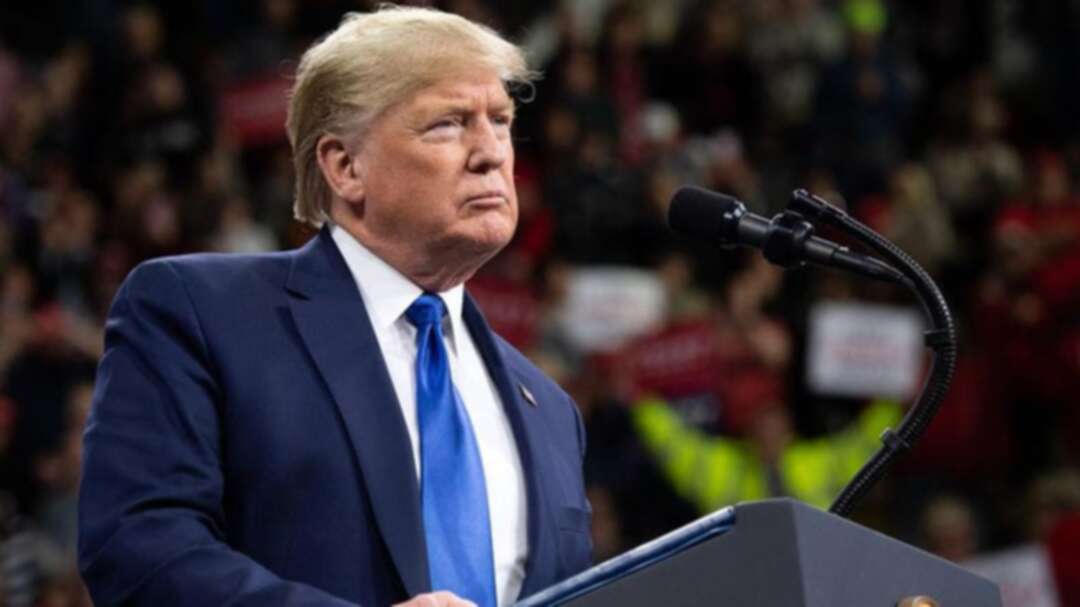-
Trump upbeat on peace plan despite Palestinian rejection

President Donald Trump said on Monday that while the Palestinians have already rejected his proposed Mideast peace deal, he expects they ultimately will agree to the blueprint the White House plans to announce following meetings with Israeli Prime Minister Benjamin Netanyahu and his chief challenger Benny Gantz.
The meetings come just a month before Netanyahu and Gantz are set to face off in national elections for the third time in less than a year and amid skepticism over whether the plan has any chance for success. Palestinians haven’t been consulted about it and have preemptively rejected any proposal from a White House it considers biased toward Israel.
But Trump said he expects that while the Palestinians will say no to the plan he’s expected to publicly release on Tuesday, they will quietly be negotiating.
“It’s something they should want,” Trump said in the Oval Office with Netanyahu. “They probably won’t want it initially. I think in the end they will. I think in the end they’re going to want it. It’s very good for them.”
Trump called the proposal a great “opportunity” but wouldn’t discuss further details, noting that its release has long been delayed because of the uncertain political situation in Israel. He refused to answer questions over whether it would include Israeli annexation of parts of the West Bank.
“We’re going to show a plan. It’s been worked on by everybody and we’ll see whether or not it catches hold. If it does that would be great and if it doesn’t, we can live with it too. But I think it might have a chance,” he said.
The proposal is expected to be very favorable to Israel, and Netanyahu has hailed it as a chance to “make history” and define Israel’s final borders.
In the run-up to the March 2 vote, Netanyahu has called for annexing parts of the West Bank and imposing Israeli sovereignty on all its settlements there. Israel captured the West Bank in the 1967 Mideast war, and the Jordan Valley, in particular, is considered a vital security asset.
Reports in Israeli media have speculated Trump’s plan could include the possible annexation of large pieces of territory that the Palestinians seek for a future independent state. American approval could give Netanyahu the type of cover to go ahead with a move that he’s resisted taking for more than a decade in power.
Annexing Israel’s settlements in the occupied West Bank would appeal to Netanyahu’s hard-line nationalist supporters but would almost certainly torpedo the viability of an independent Palestinian state and likely infuriate neighboring Jordan. In 1994, Israel and Jordan signed a peace treaty, the second between Israel and its Arab neighbors after Egypt.
Netanyahu, with an eye to his base, invited several settler leaders to join him in Washington for the rollout of the plan.
Palestinian Prime Minister Mohammad Shtayyeh denounced the still-unpublished proposal again on Monday in Ramallah, saying it “doesn’t constitute a basis for resolving the conflict.” He said the plan violates international law and “comes from a party that has lost its credibility to be an honest broker in a serious and genuine political process.”
A Palestinian official said that President Mahmoud Abbas has rejected overtures from mediators in recent weeks to arrange a phone call with Trump. The official spoke on the condition of anonymity because he was discussing a classified diplomatic issue. Abbas’ spokesman also called on ambassadors of Arab countries who have been invited to the White House Tuesday to boycott the event.
The Trump administration took several steps in recent years that angered the Palestinians. Those included recognizing the contested city of Jerusalem as Israel’s capital and moving the US Embassy there, closing Palestinian diplomatic offices in Washington and cutting funding to Palestinian aid programs.
source: The Associated Press
You May Also Like
Popular Posts
Caricature
BENEFIT Sponsors BuildHer...
- April 23, 2025
BENEFIT, the Kingdom’s innovator and leading company in Fintech and electronic financial transactions service, has sponsored the BuildHer CityHack 2025 Hackathon, a two-day event spearheaded by the College of Engineering and Technology at the Royal University for Women (RUW).
Aimed at secondary school students, the event brought together a distinguished group of academic professionals and technology experts to mentor and inspire young participants.
More than 100 high school students from across the Kingdom of Bahrain took part in the hackathon, which featured an intensive programme of training workshops and hands-on sessions. These activities were tailored to enhance participants’ critical thinking, collaborative problem-solving, and team-building capabilities, while also encouraging the development of practical and sustainable solutions to contemporary challenges using modern technological tools.
BENEFIT’s Chief Executive Mr. Abdulwahed AlJanahi, commented: “Our support for this educational hackathon reflects our long-term strategic vision to nurture the talents of emerging national youth and empower the next generation of accomplished female leaders in technology. By fostering creativity and innovation, we aim to contribute meaningfully to Bahrain’s comprehensive development goals and align with the aspirations outlined in the Kingdom’s Vision 2030—an ambition in which BENEFIT plays a central role.”
Professor Riyadh Yousif Hamzah, President of the Royal University for Women, commented: “This initiative reflects our commitment to advancing women in STEM fields. We're cultivating a generation of creative, solution-driven female leaders who will drive national development. Our partnership with BENEFIT exemplifies the powerful synergy between academia and private sector in supporting educational innovation.”
Hanan Abdulla Hasan, Senior Manager, PR & Communication at BENEFIT, said: “We are honoured to collaborate with RUW in supporting this remarkable technology-focused event. It highlights our commitment to social responsibility, and our ongoing efforts to enhance the digital and innovation capabilities of young Bahraini women and foster their ability to harness technological tools in the service of a smarter, more sustainable future.”
For his part, Dr. Humam ElAgha, Acting Dean of the College of Engineering and Technology at the University, said: “BuildHer CityHack 2025 embodies our hands-on approach to education. By tackling real-world problems through creative thinking and sustainable solutions, we're preparing women to thrive in the knowledge economy – a cornerstone of the University's vision.”
opinion
Report
ads
Newsletter
Subscribe to our mailing list to get the new updates!






















